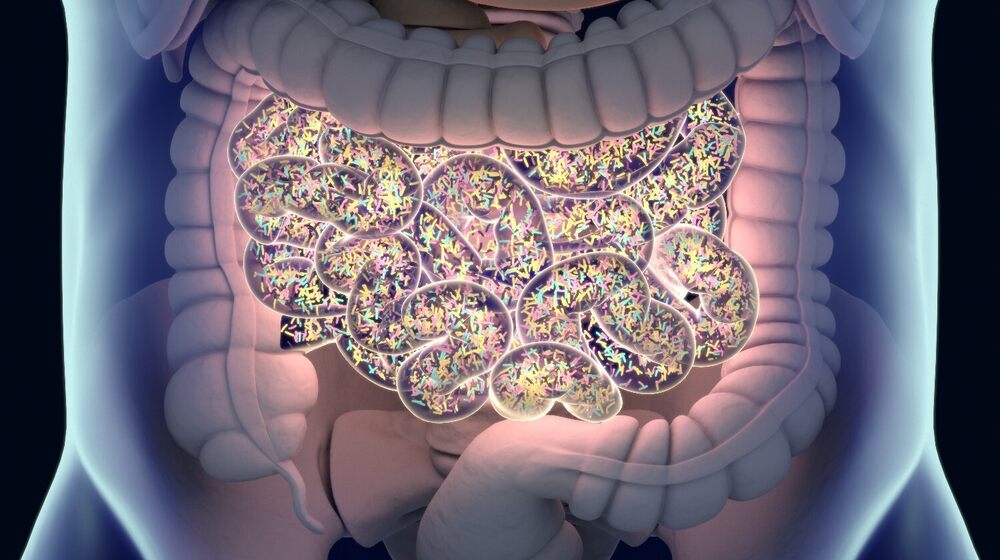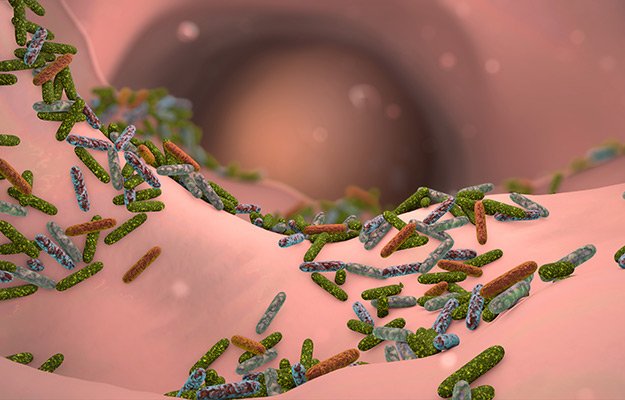
Health

OK, don’t gross out.
But your body hosts trillions and trillions of microorganisms – bacteria, fungi, and viruses. In fact, these microbiome cells in our bodies outnumber human cells by 10-to-1. Yep, 10-to-1. Altogether, they outweigh your brain.
But that doesn’t mean you’re a bag of germs! Because of their tiny, microscopic size, these cells still make up only about 1-3% of our body mass. And their presence in our bodies is for good – not for disease.

Microbiome is the mass of healthy microorganisms that live in our bodies and support our heart health, immune system, weight management, and other health functions throughout our system. The majority of these “microbes” live in our intestine or on the surface of our skin.
Of the microbes that live in our intestine, the majority reside in the cecum, a pouch at the beginning of the colon immediately past the place where the intestines join to the colon. This grouping of microbiome in the cecum is known as the gut microbiome, containing about a thousand different types of bacteria.
The gut microbiome begins to grow and evolve immediately after we are born. We encounter the microbiome for the first time while passing through the birthing canal. From there, our bodies begin to diversify the microbiome living in the gut – the more diverse the microbiome, the better for our health.
The Microbiome performs these primary functions in the body which lead to many health benefits. The primary functions at the root of the gut microbiome’s power stem from its ability to perform these three primary functions:
The digestion of fiber creates fatty acids crucial to your gut health, and you host bacteria specifically and uniquely suited to digesting fiber.
The gut microbiome is instrumental in controlling communication with immune system cells. This process affects the speed and methods with which your body fights infection. 80% of your immunity is found in the gut.
New research suggests that the gut microbiome also influences the central nervous system, which directly affects brain health.

Digestion of fiber, creation of short-chain fatty acids, immune system support, and brain function are primary functions that then affect dozens and dozens of other bodily functions. There are many ways in which the gut microbiome can affect key bodily functions and ultimately overall health:
Recent controlled studies seem to demonstrate a connection between microbiome and intestinal diseases like IBS (irritable bowel syndrome). IBS is characterized by intense bloating, cramps, and pain in the stomach, and may be caused in part by the natural production of gas by microbes.
Studies have shown that identical twins whose lifestyles have given them different microbiomes by middle age gain weight differently from each other. This proved that weight control was more a function of microbiome than genetics. Interestingly, when microbiome from the obese twin was injected into mice, they gained weight at a rate higher than mice injected with microbiome from the lean twin.
On the other hand, fecal tissue from healthy lean donors have helped reverse obesity and diabetes when transplanted into unhealthy diabesity patients.
In their 2015 study published by the US National Library of Medicine, Fu et. al. studied more than 1,500 participants and found that gut microbiome was associated with promoting triglycerides and high-density lipoproteins (HDL’s, the “good” cholesterol), both important to heart health.
Some of the bacteria in the microbiome are shown in clinical research to increase the presence of neurotransmitters. These neurotransmitters are the basis of communication between the brain and the rest of the body. For example, the neurotransmitter serotonin is a naturally occurring antidepressant that is made in the gut, and many other examples exist too.
Interested in learning about Sertraline side effects? Learn more today!
A recent study of more than 800 people measured results after participants consumed more than 40,000 meals, measuring for blood sugar and other glycemic indicators. The researchers found that people consuming the exact same meal could show wholly different blood sugar levels afterward. A similar study in human infants found that certain microbes dropped dramatically before the onset of Type I diabetes.
The Microbiome affects our health in many ways. Are you suffering from any of the symptoms discussed here? If you have questions about your gut microbiome and how to protect it, connecting with a doctor in a discrete setting has never been easier.
Opt Health is a telehealth platform that reconnects men with wellness, fitness, strength, and sexual vitality through scientific preventive medicine. From your own home, you can schedule with a physician, meet one-on-one via video conference, receive test results, and have medications delivered to your door.
For questions, inquiries, or appointments, don’t hesitate to contact us. Get personalized support and insight from top-tier physicians available 24/7.
Your health, your terms. Discover how personalized care can transform not just the way you feel, but how you live.